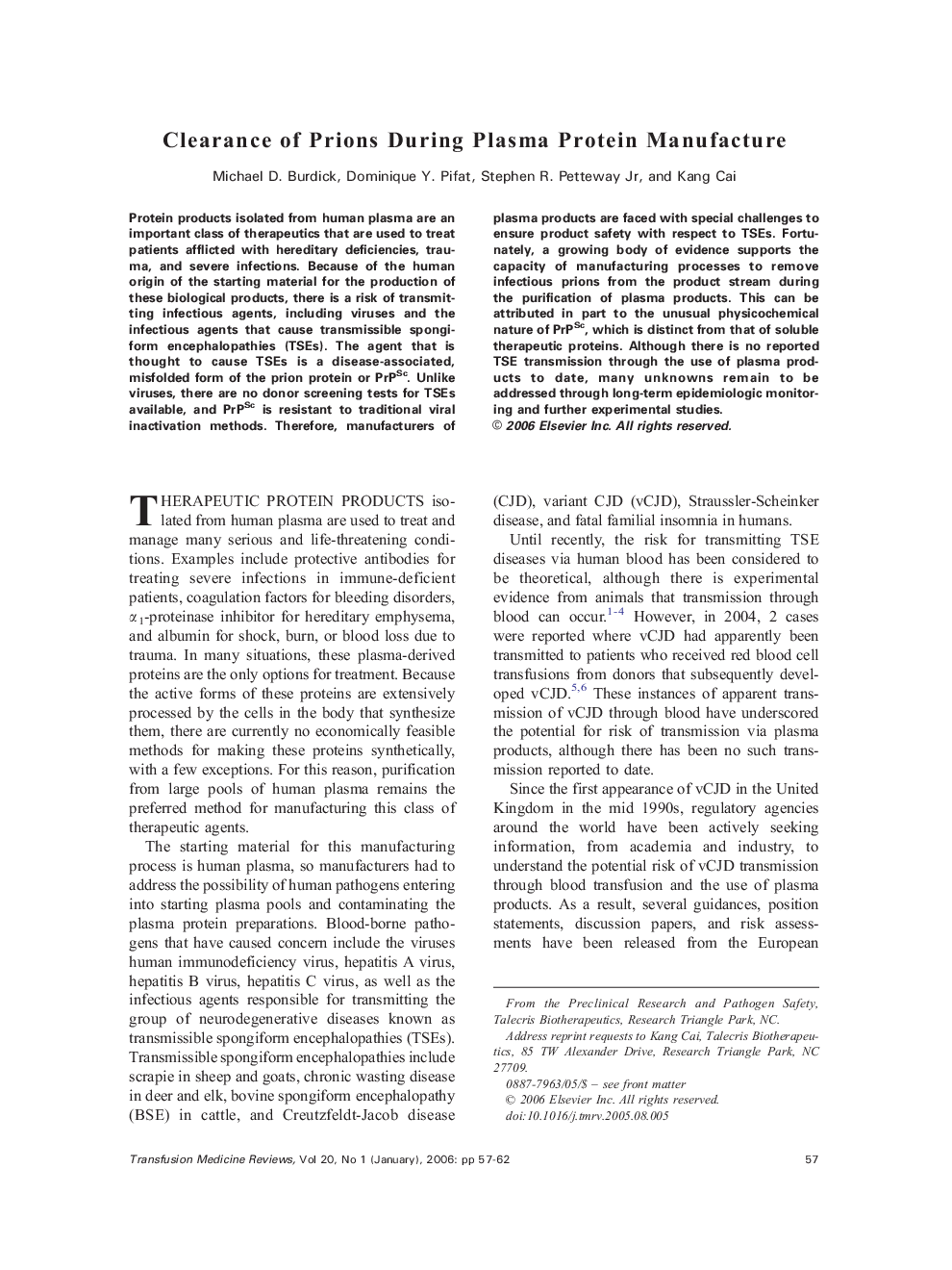| Article ID | Journal | Published Year | Pages | File Type |
|---|---|---|---|---|
| 3337045 | Transfusion Medicine Reviews | 2006 | 6 Pages |
Protein products isolated from human plasma are an important class of therapeutics that are used to treat patients afflicted with hereditary deficiencies, trauma, and severe infections. Because of the human origin of the starting material for the production of these biological products, there is a risk of transmitting infectious agents, including viruses and the infectious agents that cause transmissible spongiform encephalopathies (TSEs). The agent that is thought to cause TSEs is a disease-associated, misfolded form of the prion protein or PrPSc. Unlike viruses, there are no donor screening tests for TSEs available, and PrPSc is resistant to traditional viral inactivation methods. Therefore, manufacturers of plasma products are faced with special challenges to ensure product safety with respect to TSEs. Fortunately, a growing body of evidence supports the capacity of manufacturing processes to remove infectious prions from the product stream during the purification of plasma products. This can be attributed in part to the unusual physicochemical nature of PrPSc, which is distinct from that of soluble therapeutic proteins. Although there is no reported TSE transmission through the use of plasma products to date, many unknowns remain to be addressed through long-term epidemiologic monitoring and further experimental studies.
